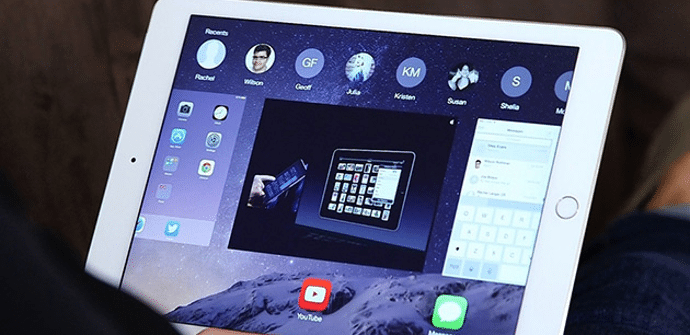
A ritual practice in our modern culture is that, once we have finished using our tablet or smartphone for a while, we launch the multitask and we are removing the open applications, one by one, sliding with the finger. There are manufacturers who have even put an "x" in the interface to stop them all at once. However, Apple has come to confirm what many of us suspected: it's no use.
If we think about it a bit it makes perfect sense: Apple It seeks, from its origins, to remove the most typical computer problems from users. Put a screen so that the person in question who is at the controls of an iPhone or an iPad bother to slide all the applications one by one in a mechanical process to save battery It doesn't seem like something very typical of apple philosophy.
Everything stems from a question to Tim Cook
A reader 9To5Mac asks Cook via email if he closes the apps from the multitask It is necessary to gain battery and, although the current CEO of Apple does not answer, another important executive of the company, Craig Federighi, is responsible for answering and he does it in the following way: I know you asked Tim, but I offer you my answer: "No and no”. that blunt.
What is multitasking for then?
The use of multitasking is clear, it serves to move from one app to another with greater haste, but your data is stored in RAM, it is not permanently active, as can happen with an application that works in the background. This instead, that is, a synchronization constant, if it requires a certain consumption. Note that some devices can be turned off, have a type like that, and when we turn them back on, multitasking continues to record the latest apps.
The possibility of closing the applications makes a very clear sense: it serves when they are blocked. That is, a screen that should load does not load, or we want to break the flow to undo some adjustment or unsaved movement, we reboot and that's it
Is it counterproductive?
In fact, contrary to popular belief, and as the editors of iDownloadblog, closing and opening applications implies that elements of the system that are already loaded and that remain thus in the RAM they disappear from it and must be retrieved from internal memory, which requires using more resources. This is not new either, something similar happens with many optimizers. We have already discussed its usefulness on some previous occasion.